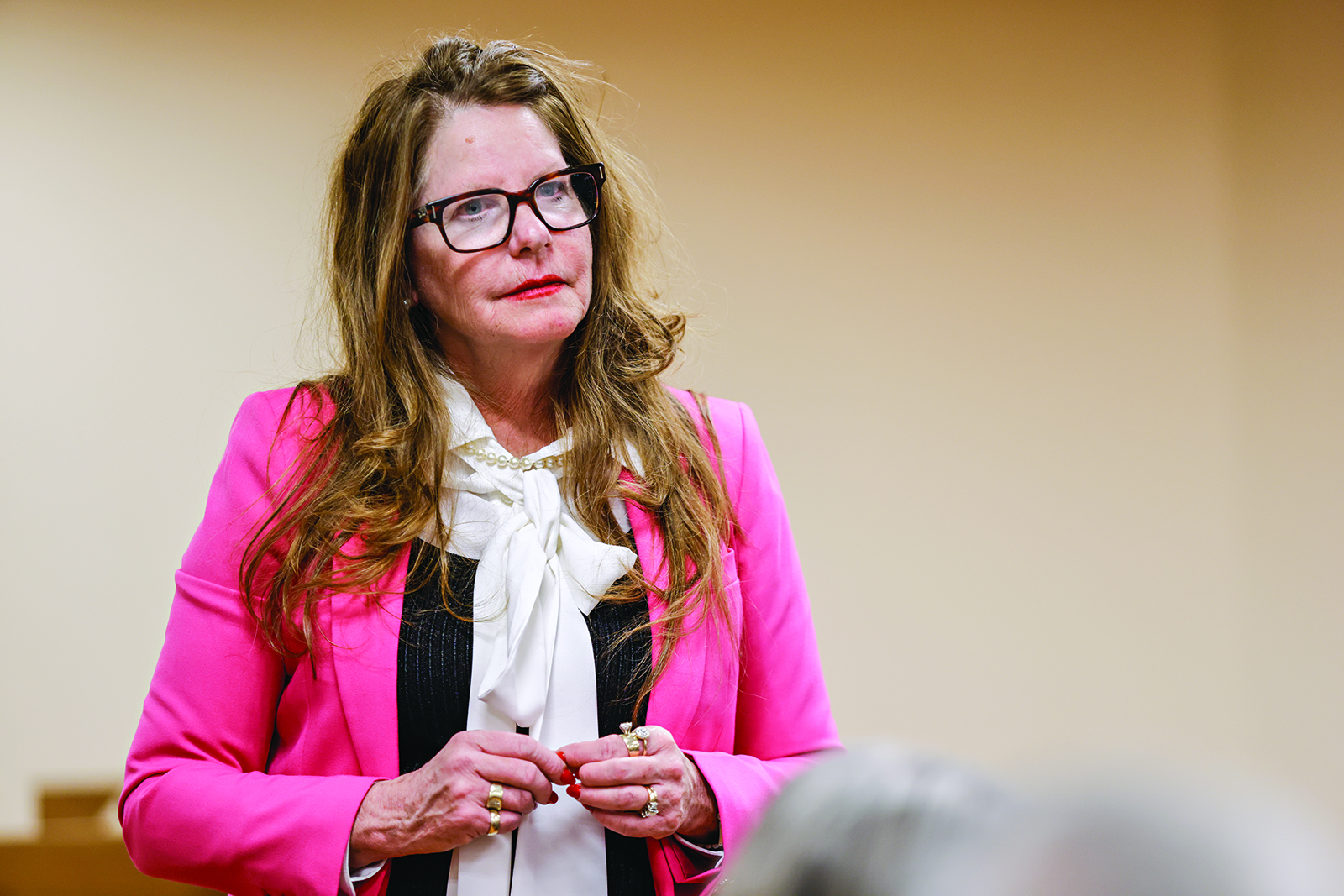Grievances Take Center Stage at Education Forum
OPI Superintendent Elsie Arntzen hosted the first of four community education conversations this week in Kalispell, where attendees advocated for union busting, lowering educator salaries and promoting conservative values
By Denali Sagner
The Montana Office of Public Instruction (OPI) on Dec. 12 held its first of four “Bridging the Communication Between Schools and Families” sessions at Sykes Diner in downtown Kalispell. Hosted by OPI Superintendent Elsie Arntzen, the meeting aimed to connect Flathead Valley residents to the Superintendent and to provide a forum for discussion. The gathering of parents, teachers, local politicians and community members took a sharp turn as attendees called for the dissolution of teachers unions, cuts to educator salaries, the integration of conservative values in public schools and an overhaul of history curriculum.
At the onset of the meeting, Arntzen emphasized that the motivation for hosting the forum was to gather public input and bridge the gap between citizens and government.
“We’ve been through a lot,” Arntzen said. “But the pandemic showed us multiple opportunities, and one of the opportunities is to have a real, authentic conversation.”
Over the course of the 90-minute meeting, Arntzen heard from dozens of community members, who raised concerns ranging from curriculum changes to school hours to population growth.
Some educators in the crowd lamented low teacher salaries, with one local substitute teacher stating that her pay after a full day of teaching amounted to only $78. Other educators concurred, noting meager salaries for jobs that have become increasingly difficult in the wake of pandemic-era changes and growing class sizes.
Yet, other meeting attendees offered a starkly different vision for the future of teacher compensation, arguing that teachers are paid too highly for too little work and are failing to serve the valley’s students.
Tanner Smith, a school board trustee for Somers Lakeside School District 29 and an incoming legislator representing Montana House District 11, assailed educators in Somers and Lakeside for earning what he characterized as unfairly high annual salaries of $80,000, and said they should not be paid for the entire calendar year.
“The union needs to be broken up because we have some tenured teachers who are making as much as administrators do,” Smith said. “In the old days, all of my teachers had second jobs.”
Smith’s critique of educator pay overrepresented the compensation packages available to most public school teachers, data reveals, both in his own school district and in Montana at large.
According to the professional negotiations agreement between the Somers Lakeside School District and the Montana Public Employees Association, for a teacher in School District 29 to make more than $75,000 per year, they must have completed more than 25 years of teaching and a wide array of graduate level education courses. However, a teacher with a bachelor’s degree and five years of teaching experience would make $41,758.55 in the Somers Lakeside district.
On average, teachers in Montana make a yearly salary of $53,133. According to data from the National Education Association, the state ranks 40th in the nation for average teacher salary and 51st in the nation (including the District of Columbia) for average teacher starting salary, which is $32,495.
Throughout the night, some meeting attendees criticized teachers unions, which they said were responsible for funding liberal school board candidates and allowing teachers to retain their jobs through tenure, regardless of performance.
Smith also lamented a loss of conservative, Christian students in the public schools, many of whom, he said, have moved to homeschooling and Stillwater Christian School, a private, K-12 Christian academy in Kalispell.
Parents praised the private, Christian schools in the area, saying their students were better prepared than students in the public education system. One mother with young children in the public schools suggested incorporating classical texts from “western civilization” into public school curriculum, and allowing parents who are “religiously uncomfortable” to opt their children out of those specific lessons. She suggested implementing a similar structure to Senate Bill 99, a controversial state law that currently requires 48 hours advanced notice be sent to parents when children are learning content related to sexual education.
Other concerns raised by community members included a lack of soft skills being taught in schools, low parental attendance at school board meetings and what some characterized as ineffective school administration. One meeting attendee suggested utilizing the school buildings later in the afternoon, when teenagers are more alert and better equipped to learn.
Some attendees pushed back against conversations that turned increasingly hostile towards unions, educators, the tenure process and the threat of “the woke bug.” One mother of a young student discouraged “vilifying the unions” and another older schoolteacher said she did not “appreciate being told we’re doing a horrible job, and on purpose.” When two educators attempted to clarify that tenure is not a “job for life,” but rather that tenured employees can be terminated for an array of reasons, the crowd interrupted them.
John Fuller, a state senator and retired Flathead High School social studies teacher, encouraged attendees to engage in the upcoming legislative session by contacting their representatives about bills they support. There are currently 4,134 bills slated for the 2023 legislative session, 252 of which are related to education. A full list of bills can be found on the Montana Legislature’s website.
Arntzen and OPI are in the process of hosting several community engagement sessions this week, including in Stevensville, Billings and Great Falls.